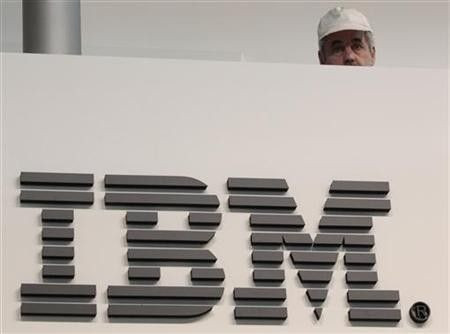IBM Readies Itself for Life after the PC

As IBM celebrates the 30th birthday of one of the most important technology devices of all time, the IBM 5150 PC, one of the company's top execs has realized the PC is not long for this world.
The PC first came to consumers through Apple, Atari and a few other manufacturers in the late 1970s and early 1980s. But on August 12, 1981, IBM's 5150 Personal Computer was the computer that spawned an entire revolution. The 5150 was the first personal computer to be mass produced with off the shelf products and software, such as Intel's 8088 computer processor and Digital Research Inc.'s operating system. This concept allowed for a quick (by 1981 standards) turn to market and for a superior product, since every manfacturer had to only worry about their personal part of the puzzle.
Without the 5150, it's hard to know where exactly the PC industry would have gone. Suffice to say, the landscape would look a lot different. In a blog post, Microsoft's Frank X. Shaw, vice president of corporate communications, talked about how different the 5150 was from previous PCs.
"But the introduction of the IBM PC was a defining moment for our industry. Once IBM entered the market with a system running the Microsoft Disk Operating System, MS-DOS, our industry really began to realize the dream of a PC on every desk and in every home," Shaw said in a blog post.
In the tech world, celebrating a 30th birthday is a lot different than celebrating your real 30th birthday. In the human world, 30-year-olds are still young and active. In the tech world, something celebrating its 30th birthday is closer to the end than the beginning. That's why the 30th birthday has IBM executives looking at life after the PC.
In a blog post, Mark Dean, chief technology officer at IBM and one of the engineers who worked on the 5150, reflects on the future of the industry. Dean says he is proud of the fact IBM left the industry in 2005, selling its division to Lenovo, because he says it was clear the tech world was moving beyond the PC.
"PCs are being replaced at the center of computing not by another type of device-though there's plenty of excitement about smart phones and tablets-but by new ideas about the role that computing can play in progress. These days, it's becoming clear that innovation flourishes best not on devices but in the social spaces between them, where people and ideas meet and interact," Dean said.
Dean says in its 100th year, IBM has done well because it has moved beyond the PC and towards the next big thing. He notes the company's fundamental scientific research, its advanced chip design, software systems and IT consulting services as examples of this. He specifically mentions the Smarter Planet initiative, saying it "elevated our game."
IBM's shift away from PCs and hard disk drives (which is another thing that Dean notes in his blog) is something that has been a subject of great debate in the industry. In his blog post, Shaw says we are entering the PC-Plus era. He says there will be 400 million PCs sold this year.
The most famous person to declare the end of the PC era was of course Apple chief executive Steve Jobs. Last year at the D8 technology conference, Jobs said "The post PC era is nigh."
There have been others that have declared the "post PC era" such as former Sun Microsystems CEO Jonathan Schwartz, who told the New York Times back in 2004 that the post PC era had been in place for four years. His reasoning was that wireless sales already surpassed PC sales back then. In retrospect, Schwartz looks a lot smarter than people gave him credit for back then.
In a blog post, Sarah Rotman Epps of Forrester, says the post PC era doesn't mean the end of the PC. She cites numbers that support the notion the PC itself is alive and well. Rather, she says the post PC era means people are shifting from stationary devices to ubiquitous computing.
"Contrast the experience of computing on a desktop PC, in one place with a clear start and finish time, to that of the anytime/anywhere computing done on a smartphone or tablet. Ubiquitous computing is also more context-aware computing, aided by sensors like accelerometers, gyroscopes, and geolocators in smartphones and tablets," Rotman Epps said.
She also says the form has shifted from arms-length to intimate devices that are close to touch. Devices have also gone from formal to informal and abstracted to physical according to Rotman Epps.
Follow Gabriel Perna on Twitter at @GabrielSPerna
© Copyright IBTimes 2024. All rights reserved.



















